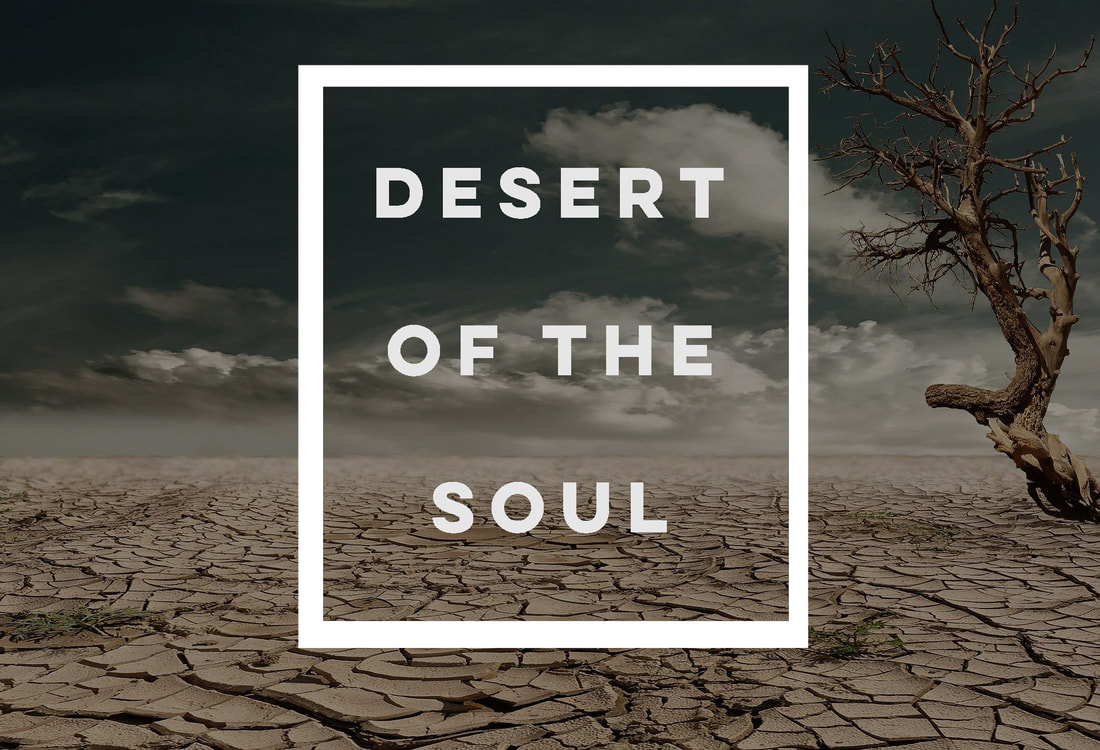|
Life is full of challenges. Some look at such everyday trials pessimistically. To them, life is just a series of pain and suffering. But James had a different perspective (James 1:2-4).
James was Christ’s half-brother. During Christ’s ministry, James thought Jesus was out of His mind (John 7:5, Mark 3:21). Later, James became Christ’s follower. After Christ’s resurrection, He specifically appeared to James (1 Corinthians 15:7). During the time of James, his audience buried half of their children, and many of them were slaves. Many of our problems today seem trivial by comparison. James taught us not to be alarmed by unexpected and painful trials in life. Instead, we should learn to rejoice in them (James 1:2; and 1 Peter 4:12-13). When bad things happen to us, good things can happen in us. Whether small or big, evaluate these trials through the lens of faith. Learn to look through them and see God at work in them. Trials may help us see our weaknesses and correct our mistakes. The process can confirm God caring for us and help us experience His faithfulness and love. Beware that many of these challenges can take a long time to resolve. Be patient. Ask God to show you the direction you should go and give you the strength to get there. Learn to endure and persist in pursuing what is good, right, noble, and true. Trials can produce perseverance, which will help us develop a mature character and the ability to live with poise and confidence, regardless of our circumstances (James 1:2-4, Romans 5:3-5). Trials can give us hope for the future glory (Romans 8:18). Look at Christ. He went through unfair suffering and torture, but He persevered till death. Then, He experienced the joyful and glorious resurrection. So, when we face trials, persevere and do not quit. Don’t let them get the last word. Have faith in God. Learn from the process, and experience God’s presence, comfort, and care. Learn to rejoice in the midst of trials, for resurrection will come, and we will experience the glory. Summarized from a John Ortberg’s sermon https://menlo.church/series/the-way#/modal/message/5614/mlo 每日的試煉 生活充满了挑战和磨难。对有些悲观的人来说, 生命只是一系列的痛苦和苦难。雅各却有不同的看法 (雅各书1:2-4)。 雅各是基督同母异父的兄弟。在基督事奉期间,雅各曾以为耶稣癲狂了(约翰福音7:5, 马可福音3:21)。后来,雅各成了基督的跟随者。基督复活后曾特别向他显现 (哥林多前书15:7)。 在雅各的时代,有一半的儿女比父母先离开世界,其中许多人还是奴隶。我们今天的很多问题与他们面临的考验相比显得微不足道。 雅各教导不要为意想不到的苦难或试验惊慌, 反倒应该学会在苦难中喜乐(雅各书1:2,彼得前书4:12-13)。当坏事发生在我们身上时,好事可以在我们里面发生。 不管考验是大或小,要从信仰的角度来评估,从試煉中看到上帝在我们身上作工。 試煉可以让我们看到自己的弱点并纠正错误。这个过程可以证实上帝对我们的关爱,帮助我们体验祂的信实和慈爱。 留意许多挑战可能需要很长时间才能解决。 要有耐心。 祈求上帝显明应该走的方向并且赐下到达那里的力量。学会忍耐,坚持追求良善、公义、崇高和真实。 这些考验会产生毅力,帮助我们培养成熟的品格(雅各书 1:2-4,罗马书 5:3-5), 在任何环境都能沉着平静, 充满信心地生活, 对未来的荣耀充满盼望(罗马书 8:18)。 让我们来看一看基督。 祂受尽不公平的苦难和折磨,但坚持忍耐直到死在十字架上。 然后,祂经历了喜乐和荣耀的复活。 所以,面临考验时要坚持到底,不要放弃。对上帝要有信心。 从这个过程中学习,体验上帝的同在、安慰和关爱。 学习在試煉中喜樂, 因为复活将会来临,我们将会经历荣耀。
0 Comments
There can be three types of deserts or wilderness in our life:
(a) The heat and pressure in our life have turned way up. (b) Our hearts have turned cold, with our passions gone. (c) We have given out so much that we feel empty with nothing left to give. Deserts may be a training ground. In the Bible, God met many significant figures in the wilderness, such as Moses. For example, in the desert, David earnestly sought God, and he learnt and grew. Psalm63:1. So, if we are in the wilderness, try not to get out in a hurry. Try to learn from the experience. Then, at least we can reduce the chance of getting there again. Let the valley of pain, suffering and darkness become our door of hope. Hosea2:15. Trust Him that at the right time, He will lead us out. When we are in the wilderness, keep doing what is right. Gal6:9. Also, consider doing the following: (a) Prepare to meet God there. Isaiah40:3-5. Stay alert, make ourselves available, and wait for Him expectantly. Psalm 5:3. (b) Plant seeds for spiritual growth. Listen to God’s word, retain it in a good and honest heart, and persevere to produce a crop. Luke8:11,15. (c) Eliminate unnecessary distractions. Prepare a straight, smooth road for God—Raising up valleys, lowering mountains, straightening out crooked paths, and leveling rough spots. Isaiah40:3-4. Focus on important things and say no to unimportant ones. Set our minds on things above, not on earthly things. Colossians3:2. (d) Search and remove idols from our hearts. They can be false things our culture worships that we sacrifice our life for. Do not imitate the culture around us but remove those idols from our life and from our lips. Hosea2:17. If we follow worthless idols, we will become worthless. 2Kings17:15. If we cling to worthless things, we will forfeit God’s love. Jonah2:8. Instead, we should replace passions for idols with passions for God. (e) Praise God. Sing to Him because singing helps focus our attention. Psalms63:5,7. Hosea2:15. We can worship God with our songs, so keep songs in our hearts. That can be where God is going to meet us. To conclude, if we are in the wilderness, learn from the experience. Wait for God, prepare for Him, and praise Him so His glory can be revealed for everyone to see. Isaiah40:3-5. Summarized a sermon by Buddy Owens https://www.youtube.com/watch?v=bWoRWyxvpEk from 20:30 在心灵的沙漠中找到上帝 我们的生活可能有三种类型的荒漠或旷野: (a)当我们生活的压力变得很高的时候。 (b)当我们的心变得冷漠, 我们的热情冷卻消失的时候。 (c)当我们付出太多,以至于感到空虚, 再无任何东西可以付出的时候。 荒漠可以成为训练地。在圣经中,许多重要人物在旷野中遇见上帝,摩西就是其中的一位。 大卫也在荒野中恳切地寻求上帝, 在那里学习和成长 (诗篇63:1)。 所以如果我们在“旷野”当中, 应该抓住这学习的机会, 不要急着逃离去。这样至少能够减少重返那里的机会。 让痛苦,苦难和黑暗之谷成为我们希望之门 (何西阿书2:15)。信靠上帝会在适当的时候带领我们走出旷野。 当我们身处旷野时,考虑做以下的事: (a)准备在那里迎见上帝 (以赛亚书40:3-5)。 保持警惕, 随时准备好, 期待地等候祂 (诗篇5:3)。 (b)为属灵成长种下种子。聆听上帝的话,持守在誠實善良的心裏,并坚持不懈,結出果实 (路加福音8:11,15)。 (c)消除不必要的干扰。預備一条平直和平坦的道路给上帝--填满山谷, 平整山丘, 把弯曲的路弄直,凹凸不平的地方弄平 (以赛亚书40:3-4)。 专注于重要的事情。思念上面的事,不要思念地上的事 (歌罗西书3:2)。 (d)搜寻并消除心中的偶像。这些偶像可以是我们牺牲自己生命所追寻, 社會文化所崇拜的虚假事物。 不要效法周围的文化。要从生命中, 嘴唇上除去那些偶像 (何西阿书2:17)。如果我们跟随毫无价值的偶像,也将变得毫无价值 (列王紀下17:15)。如果我们信奉一文不值的偶像,就会丧失上帝的爱 (约拿书2:8)。 相反地,我们应该用对上帝的热爱代替对偶像的激情。 (e)赞美上帝。向祂高歌, 因为歌唱有助集中注意力 (诗篇63:5,7; 何西阿书2:15)。我们可以通过歌唱来敬拜上帝,我们心中当时歌声涌流,那里可能是上帝与我们相遇的地方。 总而言之,如果我们身处旷野,就应该以此为学习的时机。 等候神,预备迎见并高声赞美祂。 让祂的荣耀显现给每个人看见 (以赛亚书40:3-5)。 What should we do when our plan does not materialize?
First, choose faith over fear and worry. Do not be anxious. 2 Tim 1:7. Phrases like “Not be afraid” appear 365 times in the Bible. Choose to trust that God is in control (Job 25:2), and He works for the good of those who love him. Romans 8:28. Be patient. We tend to focus on the short term. God told the prophet Habakkuk not to despair though things were terrible. Habakkuk 1:2; 2:3. Like planting, life has seasons. There are winters and there are springs. When we are in winters, wait for springs to come. James 5:7. Think things through. Do not take things at face value and jump to conclusions. Haste makes waste. Get the facts, get the truth, get the insights, and hold tightly onto them. Proverbs 25:8; 14:15; and 23:23. Learn from our failures. During Isaiah’s time, Israel was in shambles. The Israelites should have studied their failures and repented. But they did not. They wasted their failures. Isaiah 42:24-25. Try not to let a good crisis go to waste. Learn to give thanks in all circumstances. This is different from giving thanks for everything. For example, it would be difficult to thank God for COVID. But we could give thanks to God even with COVID among us because this is God’s will for us and we trust Him. 1 Thessalonians 5:18. Finally, focus not on what we can see but on the unseen. Focus on the eternal. 2 Corinthians 4:18. Need to remember we are citizens of heaven. Philippians. 3:20. To conclude, if our plan does not materialize, do not be afraid. Instead, trust God’s sovereignty and love, and wait for Him. Think things through to gain insights and learn from our failures. Also, give thanks to God and focus on the eternal. Summarized from a Rick Warren’s sermon https://www.youtube.com/watch?v=fXPyoZ5uBds 当您的计划与上帝的计划相左时 如果我们的计划无法实现时应该怎么办? 首先, 选择信心而不是恐惧和担忧。不要焦虑(提摩太后书1:7)。类似“不要惧怕”的片语在圣经中,出现过365次。选择相信上帝掌控一切(约伯记25:2), 并且萬事都互相效力,叫愛上帝的人得益處(罗马书8:28)。 我们往往短线,错过了忍耐的重要性。上帝告诉哈巴谷先知,尽管事情很糟透,不要绝望(哈巴谷书1:2; 2:3)。如像种植一样,生命是有季节的。有冬天, 有春天。 在冬天时,要等待春天的来临(雅各书5:7)。 要仔细考虑, 不要只看表象,也不要快快下结论。欲速则不达。获取事实,获取真相,获取洞察,并紧紧抓住它们(箴言25:8; 14:15; 23:23)。 要从失败中学习。在以赛亚时期,以色列陷入混乱。以色列人应该研究他们的失败, 并且悔改。然而他们没有如此行。他们浪费了失败后面的教训(以赛亚书42:24-25)。 要在任何情况下都感恩。这跟为所有事情都谢恩不同. 譬如说,我们将很难为冠状病毒感谢上帝。但是,即使冠状病毒在我们中间流行,我们也可以感谢上帝,因为这是上帝对我们的旨意,我们信靠祂(帖撒罗尼迦前书5:18)。 最后,不要把目光专注在所见的,而要集中所不见的。当定睛于永恒(哥林多后书4:18)。记住,我们是天上的国民(腓立比书 3:20)。 总而言之,如果我们的计划没有实现,不要害怕。 相反地,相信上帝的主权和慈爱,耐心等候祂。 仔细思考,获得洞察, 从失败中学习。在一切境况中感谢神,将我们的注意力定睛于永恒。 Habakkuk, an Old Testament prophet, experienced violence, injustice, and destruction. He cried out to God. Habakkuk1:2-4.
Satan wants us to believe if our Heavenly Father loves us, He will protect us against all harm; if bad things happen to us, God must have forsaken us. Luke 4:9-12. OT’s Joseph suffered for decades. Later, he explained God’s intent was to save many lives. Genesis 50:20. In the short term, things could be terrible. Unfortunately, we tend to focus on the negatives, and what is in front of us. What to do? Habakkuk was honest with his feelings. Seeing bad things as what they were, he complained to God. Habakkuk1:2-4. His turning point was when he stood on the ramparts to look far, and he listened to God. Habakkuk 2:1-2. God told him: The righteous would live by faith; be patient; and waited for the destruction of their arrogant, wicked, and idolatrous enemies. Habakkuk 2:3-19. Then Habakkuk remembered and saw God’s power, glory, holiness, and salvation. He trembled and waited patiently for God. Even with nothing left—no figs, grapes, olives, food from fields, sheep, and cattle—he still rejoiced in the Lord, his Savior. He knew the Sovereign Lord was his strength. Habakkuk 2:20-3:19. Christ told His disciples some of their closest relatives and friends would hate, betray, and kill them. Then Christ reassured them not one hair on their heads would perish. Luke 21:16-19. What could death do other than putting them into their heavenly Father’s arms. All things work together for His glory and the good of those who love Him. Romans 8:28. In addition, we should identify and strengthen our weaknesses, and fight. Learn from Nehemiah in re-building the Jerusalem walls. When the walls were half-built, with so much rubble and their enemies’ constant threats, the Jews were tired and afraid. Nehemiah told them to remember God. Nehemiah also established extensive defense systems to fight. Nehemiah4:6-23. In conclusion, be good. Be honest with what is confronting us and our feelings. Do not just see the negatives. See the positives also. Look far. Look long term. Remember God—His power, glory, holiness, and mercy. Listen to the Lord. John 1:14. Trust and patiently wait for Him. Rejoice in Him, our Savior. Identify and strengthen our weaknesses, and fight. Know that our Sovereign Lord is our strength. Then we will really live. Luke 21:19. Summarized from Tim Keller https://gospelinlife.com/trusting-god-in-difficult-times/ 蘇穎智 https://www.youtube.com/watch?v=2yHCkWT0-Dc&t=126s Rick Warren https://www.youtube.com/watch?v=WU-EAfIN7WM 在艰难的时期仰望上帝 哈巴谷先知看到暴力,不公正和毁坏。他向上帝呼求 (哈巴谷书1:2-3)。 撒但希望我们相信如果神爱我们,就会保护我们免受一切伤害; 如果坏事发生在我们身上, 神一定已经离弃了我们。 旧约的约瑟经受苦楚几十年之久。后来,他解释上帝的旨意乃是通过这些艰苦挽救许多生命 (创世记50:20)。 从短期来看,情况可能会很糟糕。不幸的是,我们往往专注眼前的事物和负面的事情,而忽略长久而正面的方面。 我们应该怎么办呢? 哈巴谷坦诚面对自己的感受。 他正视眼前的伤害,痛苦,饥饿和悲剧,向上帝抱怨。 先知的转折点是他站在城墙守望樓上远看, 在那里听主话语 (哈巴谷书2:1-2)。 主告诉他,義人因信得生。主也告诉他要有耐心, 要等待那些傲慢,邪恶和崇拜偶像的敌人遭到覆灭 (哈巴谷书2:3-19)。 然后,哈巴谷记起并看到神的大能,荣耀,圣洁和救赎。他身体战兢,耐心地等待神。 即使一无所有,没有无花果,葡萄,橄榄或农作物,也没有绵羊, 没有牛,他仍然因为他的救主而喜乐。他知道拥有主耶和华是他的力量 (哈巴谷书2:20-3:19)。 基督告诉他的门徒,有些最亲密的亲友会恨恶,背叛并杀死他们。但令人惊讶的是,基督随即保证他們連一根頭髮也必不受損壞。除了使他们投入天父的怀抱里,死亡还能做什么呢?万事互相效力,为了祂的荣耀,也为了那些爱祂之人得益( 罗马书8:28)。 此外,我们应该找出自己的弱点, 坚固它们,并进行争战。 向尼希米重建耶路撒冷城墙学习。 当城墙建到一半时,瓦砾遍地,仇敌威胁不断,犹太人又疲惫,又害怕。 尼希米告诉他们要记住上帝。 尼希米还建立了广泛的防御系统与仇敌战斗(尼希米记 4:6-23)。 总括来说,要做个良善的人。 诚实地面对事实, 面对我们的感受。不要只看负面, 同样要看正面。 也要放眼未来,从长计议。 记住上帝——祂的能力、荣耀、圣洁和怜悯。 听主的话(约翰福音 1:14)。 信靠主并耐心等候。 以上帝我们的救主为乐。 找出我们的弱点. 使其坚固,并且勇敢争战。 知道我们至高的主是我们的力量, 如此,我们将必得生命( 路加福音 21:19)。 A Tim Keller Sermon Summary When Paul prayed for the suffering Christians, he asked for a strong spirit or inner self, not for God to protect them or reduce their pain (Ephesians 3:16). Why?
A strong spirit sustains us in adversity. But we are doomed if we have a crushed spirit, with no joy or desire to live (Proverbs 18:14). What can hurt our spirit? Physical ailments, prolonged sickness or not eating right, can bring down our spirit. For example, thyroid problems can lead to suicidal depression. We can be brought low by a bad conscience, causing us to run in fear even with no one chasing us (Proverbs 28:1). But a sense of guilt is common. We can be brought low if we have no friends or support. We need kind words to lift us up, a shoulder to lean on (Proverbs 12:25). But our uniqueness leads to loneliness. We don’t even understand ourselves, let alone others (Proverbs 16:2, 14:10). We can be brought down if life has no meaning. All parties will end. One member of a happy family will see the death of the rest (Proverbs 14:13). We can be brought down if we have no hope (Proverbs 13:12). But earthly things are transient. Resting our hope on transient things, such as money, power, traveling, fame, sex, a soulmate, or friends, leads to emptiness when we lose them, or sometimes even when we get them (Proverbs 13:12, 15:13). So, how can we strengthen our spirit? The tree of life in Genesis and Revelation represents the fullness of life, fulfilling our deepest longing. But when we seek to be in control, we lose it. Christ obeyed, leading to His spirit and body being crushed on a tree. Through His obedience, we gain the tree of life. Through Christ, God can love us as we are. We will never be alone because He will always be with us, supporting us. Death is not the end, but rather a beginning to live in a place that Christ has prepared. So, rest your hope and faith in Christ, our loving, powerful, and wise God. He alone can satisfy the deepest longing of our hearts. We still enjoy things on earth. We still need others around us. But our ultimate hope rests in Christ and the Gospel. This will strengthen our spirit, allowing us to taste the tree of life. Summarized from a Tim Keller sermon. https://gospelinlife.com/downloads/the-wounded-spirit-5389/ 如何治疗倦怠 保罗为在受苦中的基督徒祷告时,为他们祈求刚强的灵(就是内在生命),而非痛楚的结束(以弗所书3:16)。这是为什么呢? 原来刚强的灵在逆境中可以托住我们。但是,如果我们心灵忧伤,生活没有盼望,也没有快乐, 就注定失败 (箴言18:14)。什么会伤害到我们的内在生命呢? 身体不适,长期疾病或不正确饮食,可能会使我们的内在生命软弱。 也许良心的责备会使我们倒下,即使无人追赶,也会逃跑(箴言28:1)。 但内疚是很常见的。 没有朋友或支持会使我们倒下。 我们需要有肩膀可以倚靠, 有善意的言语可以使我们快乐(箴言12:25)。 但是,我们的独特会导致孤独。 我们甚至不太了解自己,更不用说了解别人(箴言16:2, 14:10)。 生存缺乏意义会使我们倒下。但世上没有不散的宴席。每个幸福家庭最后都会有一个人看到其他成员的死亡(箴言14:13)。 生活没有希望也会使我们倒下(箴言13:12)。 世俗事物转瞬即逝。如我们把希望寄托在短暂的事情上,比如旅行,金钱,权力,性色,名望,伴侣或朋友,当我们失去这些人或者事时,我们的情绪会变为失落。 甚至有时即使得到了它们, 我们也会感觉到空虚(箴言15:13,13:12)。 那么,如何加强我们的内在生命呢? 答案是创世记和启示录中的那颗生命树。它代表着生命的丰满,实现了我们里面最深切的渴望。 当我们想要掌控未来时,我们便会失去它。 基督顺服父神,祂的灵和肉体都在十字架上被压伤。 因着祂的顺服,我们得到了生命树。 通过基督,上帝可以照我们的本相来爱我们。 我们永远不会孤单,因为祂将永远和我们在一起,托住我们。 死亡不是结束,而是在基督为我们崭新生活的开端! 所以,将盼望和信心寄于基督,那位善良,慈爱,大能,智慧的上帝身上。惟有祂能满足我们心中最深切的渴望。 我们仍然可以享受地上的事物,仍然需要周围的人环绕。 但是,我们最终的盼望应当依赖基督和祂的福音。 这就是加强我们的内在生命,让我们品尝生命树的秘诀。 A Tim Keller Sermon Summary Psalms is a book of prayers. It has 150 chapters, with only Psalms 39 and 88 ending in despair. Why is that? Let’s take a look at Psalm 88.
Psalm 88 talks about suffering, an inevitable aspect of life. In this Psalm, everything seems to go wrong, with friends, loved ones, and life withering away. Feeling totally rejected by God, the psalmist criticized and cross-examined God (v10-12). Such darkness can last for a very long time (v1, 18). The Bible is realistic about the effects of suffering on people. Psalm 39 even ends with the psalmist asking God to turn away so that he might enjoy life again before death. Though the psalmist was mad at God, the psalmist still prayed to Him. Psalm 88 was written by Heman, who was in charge of music according to 1 Chronicles 6. Under him, Psalms 42-49 and some in the Psalm 80s were written. Just as suffering turned Job into someone great, darkness may have turned the psalmist into a great artist. Did he ever imagine people thousands of years later still learning from his work? Did God really abandon him? We, the self-centered, deserve God’s abandonment. To reconcile with us, God paid the greatest price; God, the Father, turned away from Christ, so that absolute darkness fell upon Him (Matthew 27:45). Our loving God was willing to go through such pain for us. So, even when it seems we are in total darkness, we should trust God and know that we are never truly forsaken. Times of darkness may be when we ask ourselves why we follow God. Do we just want earthly things from Him? That’s often how we start with God because we can’t see Him. But as time goes by, after experiencing His power, love, and wisdom, have our hearts’ desires changed? Do we still serve ourselves or Him? And let’s not forget, even though Christ died a terrible death, He was resurrected. One day we will be resurrected as well, so take comfort that we will never go through anything that resurrection won’t fix. To conclude, suffering is inevitable, and we may not fully understand why. But trust that God always loves us. Suffering may be an opportunity to grow deeper in Him and become more like Christ. Trust that one day, we will live in glory with Him. Summarized from a Tim Keller’s sermon: https://gospelinlife.com/downloads/heman-s-cry-of-darkness-5556/ A Tim Keller Sermon Summary Suffering is inevitable, particularly when we get old and sick. Suffering comes in different ways, such as parents seeing their beloved kids leaving for colleges. Why do we suffer? Let’s learn from the book of Job.
Satan accused Job of fearing God because God had given him a lot. Job1. In OT, “fear” means an inward awe and wonder. God, in control, allowed Satan to cause Job to lose all his children, servants and animals in one day. Typical responses fall into two camps. Moralistic people believe that if you have lived a good life, you will get good stuffs. So, suffering is God’s punishment for bad behaviors. Cynical people don’t believe in God, or believe in God being incompetent/indifferent. To them, bad consequences are their own failure. Both responses arise from us intending to take control in life. Suffering has no pat answers. But we know one thing. We will suffer if we live for earthly objects because, for sure, one day we will lose them. God never explained to Job why he suffered, but just asked Job whom he thought He was. God could have told Job that the process had an end, with him getting back somewhat to where he was; and through it, he would become one of the most famous persons on earth, with the rest of history learning from him. Instead God put him through the wringer. From the unexplained suffering, Job gained a better understanding of God and himself. One of the main challenges of going through sufferings is that we doubt God’s goodness, love for us, and power. According to Satan, there is no love. We are all self-centered mercenaries, manipulators. We are nice to others because we want things from others. We are serving ourselves. When Satan went to Adam and Eve and alleged God didn’t really care for them, they agreed. We are similar. So, we want to be in control and we focus on earthly objects. God shows us there is love and goodness via the cross. Christ has everything. Yet, He gave them up, was crushed and abandoned. Christ’s action shows God loves us as who we are, proving Satan a liar. When we suffer on earth, accept them and accept our ignorance. Trust our mighty God has His plan. Trust in His goodness and His love for us. Summarized from a Tim Keller sermon https://gospelinlife.com/downloads/questions-of-suffering-5565/ A Tim Keller Sermon Summary  Isaiah 49:1-13 speaks of many wonderful things coming: salvation to the ends of the Earth, land restored, captives freed, and hunger and thirst eliminated. Even the heavens and Earth will rejoice.
The chapter also talks about how Israel would be brought back. But Zion, representing Israel, with its temple destroyed, still felt forsaken (v14). Don’t we sometimes feel the same when things are not working out? The Bible has amazing promises, but when God doesn’t give us what we pray for, we feel deserted. Our faith withers, particularly if we are facing daunting circumstances. When our temple is destroyed, we feel God forgetting us (v14). Responding to Israel’s despair, God didn’t say, “Just suck it up,” or “Poor child.” Instead, God asked whether a mother would forget her baby at her breast (v15). Tending to Israel’s emotions and intellect, God used the metaphor of a mother and her nursing baby, a relationship they could understand. It is difficult for a mother to forget her nursing baby. Physically, stopping the nursing is painful because Prolactin pushes the milk out. Emotionally, stopping would rob the mother of her delight because bonding with her baby produces oxytocin. Then God added that even mothers might forget, but He wouldn’t (v15, Psalm 27:10). Such affirming words are powerful. However, true love is shown by action. (1 John 3:18). So, God further emphasized His love with the act of engraving Israel on His palms (v16). In Hebrew, “engraved” means using a hammer and chisel. Centuries later, addressing Thomas’ doubt, Christ showed him the wounds in His hands (John 20:27). When children don’t get what they want, they might feel neglected and start to scream. Sometimes, we are similar. We should remind ourselves that we don’t need many things. Our identity is not based in material possession. We may be experiencing lots of suffering now, and God might not answer our prayers with the answer we want. But remember the cross shows that God will never forsake us. On the cross, Christ was forsaken, taking the punishments we deserve. The cross shows God’s unconditional love. We are engraved in His palms! Summarized from a Tim Keller’s sermon, titled, “Can a Mother Forget?” https://gospelinlife.com/downloads/can-a-mother-forget-6041/ A Tim Keller Sermon Summary Paul was in prison because of the Ephesians, and the Ephesian Christians were suffering too. Then Paul encouraged and prayed for them (3:1,13). What did Paul pray for? Let’s learn from Ephesians 3:13-21.
Typically, one would pray to reduce their physical affliction and sickness. Paul didn’t. Nor did Paul pray for their health, wealth, beauty, reputation, or comfort. Instead, Paul asked God to strengthen them through the Holy Spirit! Paul also asked God to help them grasp the immense love of Christ—not just knowing with their minds, but fully realizing the width, length, depth and height of Christ’s love. This love is shown by God never forsaking us (Heb13:5). If we know that, we should never feel insecure. This love is shown by Christ: even though He is God, He became human, suffered to the point of death, and died on a cross for us (Philippians 2:5-8, Matthew 26:38). If we know that, we would follow Christ who loves us so much. This love is shown by Christ giving us the glory His Father gave Him (John17:22). If we remember that, we will not be enslaved by worldly things. This love is worth the adoration of millions of angels (Revelation5:11-12). Shouldn’t we adore Him also? Day by day, we should strive to be mindful of this immense love of Christ so that we might be renewed, even as our physical bodies grow weak (2Corinthians4:16). When we suffer, we must guard against being controlled by the suffering, and instead seek to overcome whatever sorrow and grief are upon us. We must ask God to strengthen us through the Holy Spirit and to help us grasp Christ’s immense love. Summarized from a Tim Keller’s sermon, titled, “Be Strong Through the Holy Spirit. Grasp Christ’s Immense Love”: https://gospelinlife.com/downloads/when-i-survey-5633/ 当我们受苦时,我们应该祈求什么? 保罗因为以弗所人被监禁,而以弗所的基督徒也在受苦。保罗鼓励他们不要气馁, 为他们祷告 (以弗所书 3:1, 13)。保罗祈求些什么呢?让我们从以弗所书3:13-21中学习. 通常人们会祷告要求减少疾病和痛苦,保罗却没有。他没有为他们的健康,财富,美丽和名誉祷告,也没有祷告上帝安慰他们。 相反地,保罗要求上帝通过圣灵使他们刚强起来! 保罗也祈求上帝帮助他们明白基督的爱--不只是用头脑来理解,而是心里彻底地明白基督之爱的长阔高深。 上帝从不放弃我们,祂的爱就如此显明出来 ( 希伯来书13:5)。如果知道这一点,就不应感到不安全。 基督的一生也显明了这种爱。 虽然祂是上帝,但却成了人,为我们受苦, 以致于死, 且死在十字架上 ( 腓立比书2:5-8; 马太福音26:38)。如果知道这点,就会跟随这么爱我们的基督。 基督赐下从父神那里得到的荣耀,这种爱也由此显明出来 ( 约翰福音17:22)。记住这点,我们就不会成为世物的奴役。 这种爱值得千万天使的敬拜 ( 启示录5:11-12)。我们岂不也该加入他们的敬拜大军吗? 虽然外面的身体渐渐地毁坏,每天尝试有意识地默想基督无比的爱,让自己的心意更新( 哥林多后书4:16)。 受苦之时必须谨防不被痛苦支配。相反地,努力克服临到的任何悲伤。必须祈求上帝通过圣灵使我们刚强, 帮助我们明白基督无比的爱。 |
Categories
All
|
Proudly powered by Weebly







